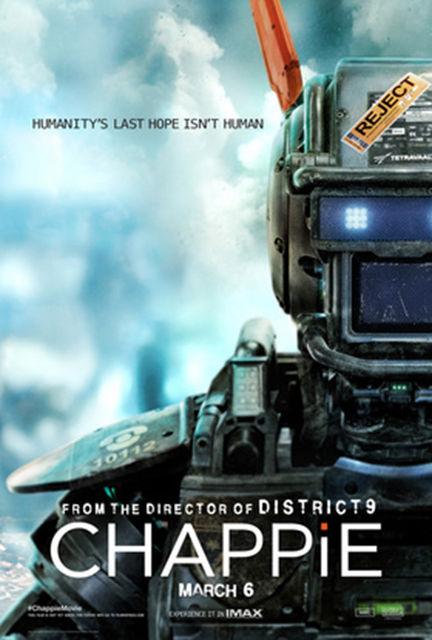“Chappie” is as tasteless and tone-deaf as it is technologically proficient. The androids in the movie are lovely to look at, but anything past that is so bloated and confused that it’s painful to stick around. Its extended runtime does not help.
“Chappie,” a movie about a robot gaining consciousness, hardly maintains an original premise. To this extent, the film earns its claim to originality through its perverseness. Imagine if a fast-learning, extremely childish android were initiated into a gang! Then imagine everything devolves into self-immolation.
Ultimately, “Chappie” plays like a Michael Bay film, if Bay tried to have a heart or an emotional center. However, in its attempts to balance edge with emotion, it staggers and face-plants. It plays as exploitative nonsense, forcing in emotional manipulation at every turn.
We are reminded constantly that Chappie is a child, yet the horrific things that happen to this child are treated so flippantly that it reveals how empty the movie is inside. A day after Chappie first learns to speak, Ninja (one of the protagonists with which we’re supposed to sympathize with) drives him out into gang territory to be hazed, abused and set on fire. All the while, Chappie, a child, screams that he wants to go home. Minutes later, he has his arm sawed off.
“Chappie” is insulting. It expects its viewers to play along as it endeavors to wring emotions out of them with the subtlety of a recent Nicolas Cage performance. It is ham-fisted and tired in its plodding emotional malaise. Every protagonist confronts the threat of death, yet every single one of our “heroes” miraculously evades it. Director Neil Blomkamp coddles his creations in a way not dissimilar to Stephenie Meyer.
The film pretends to be a high-thinking, evolved movie, what with its dry, stilted dialogue contemplating death and touted moral ambivalence, but it reads as though it were written by a sophomore studying philosophy who watched “Lucy” and “The Iron Giant” consecutively. In this movie, good is good and bad is bad. The good guys live and the bad guys die. End of story.
Though “Chappie” is stocked full of talented, well-known actors, it cannot get past all of the trappings of the film. Dev Patel is initially charming as Deon Wilson, the awkward scientist who grants Chappie his consciousness and subsequently deems himself the android’s “maker.” Later on, this act becomes irritating as Deon’s God complex intensifies.
I am almost certain Sigourney Weaver was tricked into this. She has around 10 lines and seems to fill no other purpose other than telling our protagonists “no.” Hugh Jackman relishes his role as the one-note lead villain. He is as Australian in “Chappie” as he has been his entire life (perhaps even more so), with cargo shorts, boots, a thick accent and a terrible haircut. It would be wrong to blame the actors for their performances; they could only do so much with the material given.
A trademark of a good movie is a sense of being grounded, a sense of reality. This is not to say that a movie must be realistic in comparison to the real world. Rather, a movie must be able to navigate soundly within its own established limits.
“Chappie” never finds its anchor. It wants to make us sad, angry, excited and happy, but provides no basis for why these feelings should be evoked in us. It is a shallow movie, and while its creators may want you to overlook the mechanisms they utilize to try and twist our guts, these devices dwell too close to the surface to remain unrecognizable.
By the climax of the movie, I could not find it in myself to care about anything that was happening. As everyone turns to robots and what is essentially a child kills multiple adults without repercussion, I gave up. I gave up hoping “Chappie” was about something—anything—and I gave up hoping that it would rise above its moral and narrative failings.








